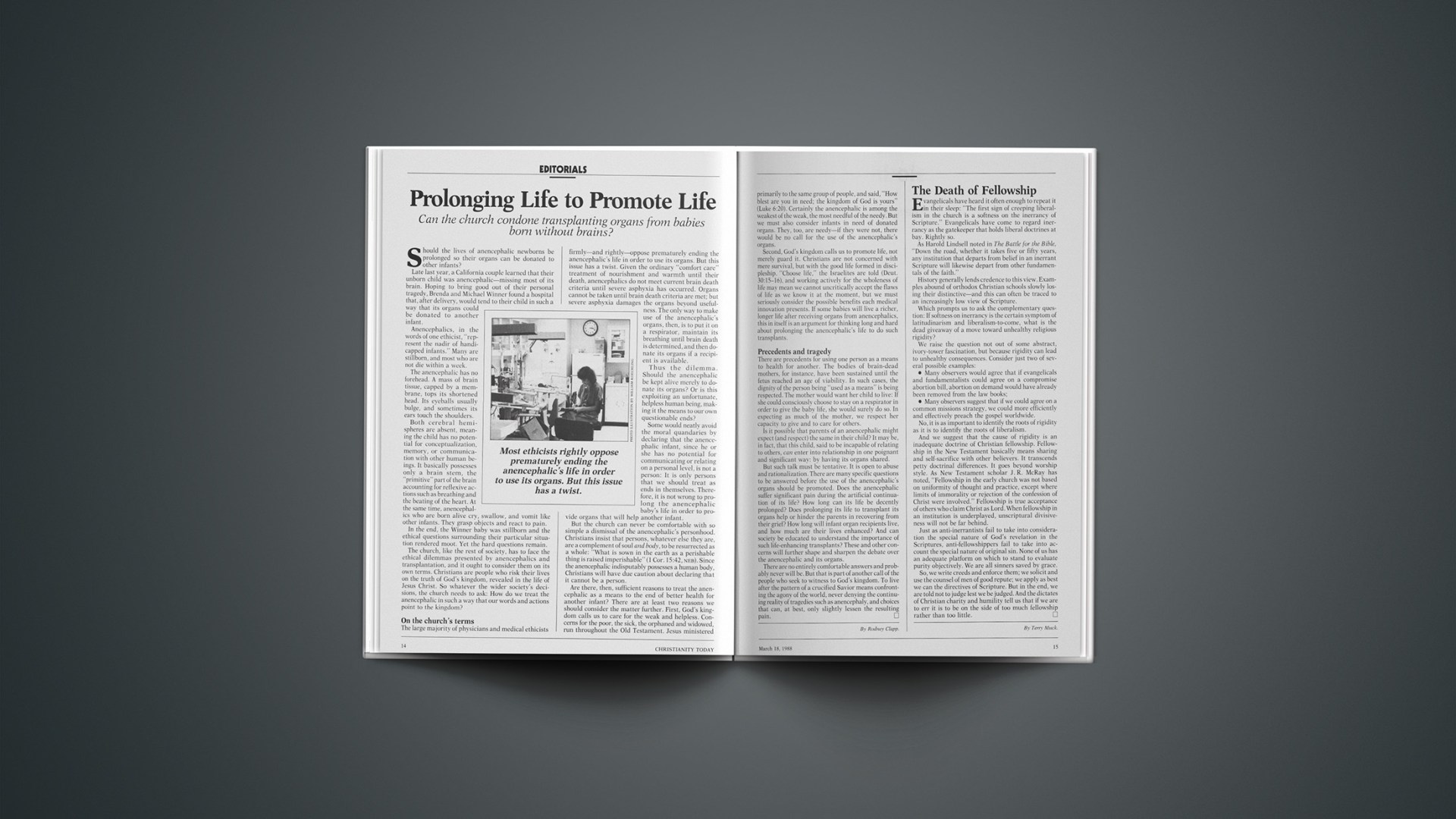Evangelicals have heard it often enough to repeat it in their sleep: “The first sign of creeping liberalism in the church is a softness on the inerrancy of Scripture.” Evangelicals have come to regard inerrancy as the gatekeeper that holds liberal doctrines at bay. Rightly so.
As Harold Lindsell noted in The Battle for the Bible, “Down the road, whether it takes five or fifty years, any institution that departs from belief in an inerrant Scripture will likewise depart from other fundamentals of the faith.”
History generally lends credence to this view. Examples abound of orthodox Christian schools slowly losing their distinctive—and this can often be traced to an increasingly low view of Scripture.
Which prompts us to ask the complementary question: If softness on inerrancy is the certain symptom of latitudinarism and liberalism-to-come, what is the dead giveaway of a move toward unhealthy religious rigidity?
We raise the question not out of some abstract, ivory-tower fascination, but because rigidity can lead to unhealthy consequences. Consider just two of several possible examples:
- Many observers would agree that if evangelicals and fundamentalists could agree on a compromise abortion bill, abortion on demand would have already been removed from the law books;
- Many observers suggest that if we could agree on a common missions strategy, we could more efficiently and effectively preach the gospel worldwide.
No, it is as important to identify the roots of rigidity as it is to identify the roots of liberalism.
And we suggest that the cause of rigidity is an inadequate doctrine of Christian fellowship. Fellowship in the New Testament basically means sharing and self-sacrifice with other believers. It transcends petty doctrinal differences. It goes beyond worship style. As New Testament scholar J. R. McRay has noted, “Fellowship in the early church was not based on uniformity of thought and practice, except where limits of immorality or rejection of the confession of Christ were involved.” Fellowship is true acceptance of others who claim Christ as Lord. When fellowship in an institution is underplayed, unscriptural divisiveness will not be far behind.
Just as anti-inerrantists fail to take into consideration the special nature of God’s revelation in the Scriptures, anti-fellowshippers fail to take into account the special nature of original sin. None of us has an adequate platform on which to stand to evaluate purity objectively. We are all sinners saved by grace.
So, we write creeds and enforce them; we solicit and use the counsel of men of good repute; we apply as best we can the directives of Scripture. But in the end, we are told not to judge lest we be judged. And the dictates of Christian charity and humility tell us that if we are to err it is to be on the side of too much fellowship rather than too little.
By Terry Muck.










